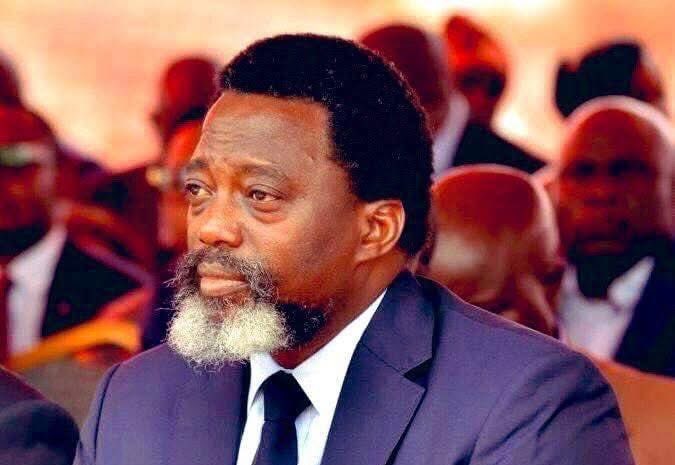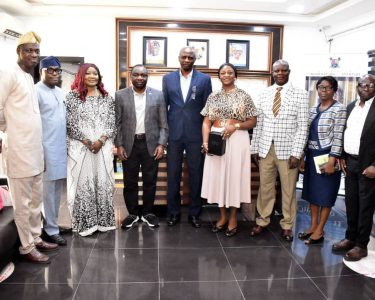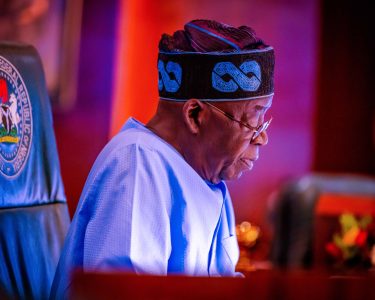Former President Joseph Kabila Stripped of Immunity
DR Congo Senate Paves Way for Prosecution
Summary
- On May 22, 2025, the DRC Senate voted to revoke former President Joseph Kabila’s parliamentary immunity, opening the door for criminal prosecution.
- Kabila faces accusations of treason, war crimes, crimes against humanity, and supporting the M23 rebel group, allegations he denies.
- Authorities banned Kabila’s political party (PPRD), raided his properties, and froze assets, citing links to rebel activity.
- Living in South Africa since 2023, Kabila returned to Goma in April 2025, claiming to aid peace talks in the rebel-controlled city.
- His return coincides with sensitive U.S.-led ceasefire negotiations, escalating political and security tensions.
Kinshasa – The Democratic Republic of Congo’s (DRC) Senate made a historic decision on Thursday, May 22, 2025, voting to lift the parliamentary immunity of former President Joseph Kabila to open the door for his potential prosecution on charges of treason, war crimes, crimes against humanity, and backing the M23 rebel group in the country’s conflict-ravaged east.
The move, announced by Senate Speaker Jean-Michel Sama Lukonde, follows months of escalating tensions between Kabila and President Felix Tshisekedi’s administration, which has accused the former leader of orchestrating an insurrection.
Kabila, who ruled the DRC from 2001 to 2019 after succeeding his assassinated father, President Laurent-Désiré Kabila, has enjoyed immunity as a senator for life, a privilege granted upon leaving office. This status, unique among former Congolese presidents, shielded him from legal accountability until the Senate’s vote.
The decision came after the Congolese army’s military prosecutor formally requested the Senate to revoke this privilege, citing “clear evidence” of Kabila’s involvement with the M23 rebels, who have seized key eastern cities like Goma and Bukavu in 2025, exacerbating a decades-long conflict that has displaced 7 million people and killed approximately 3,000 this year.
Justice Minister Constant Mutamba has been a vocal proponent of prosecuting Kabila, stating that the government has amassed “irrefutable evidence” of his direct participation in “war crimes, crimes against humanity, and massacres of peaceful civilians and military personnel.”
The accusations center on Kabila’s alleged support for the Rwanda-backed M23 rebels, who have intensified the conflict in the mineral-rich eastern DRC. President Tshisekedi first leveled these claims in 2024, alleging Kabila was preparing an insurrection, a charge Kabila has consistently denied.
The government’s campaign against Kabila intensified in April 2025, when the Interior Ministry suspended his People’s Party for Reconstruction and Democracy (PPRD) for its “ambiguous attitude” toward M23’s occupation of Congolese territory. Authorities also raided Kabila’s properties and ordered the seizure of his assets, with Mutamba urging the former president, who has resided in South Africa since 2023, to return and “face justice” or risk trial in absentia.
Kabila’s reported return to the DRC on April 18, 2025, added fuel to the controversy. According to associates and an M23 official, he arrived in Goma, a rebel-held city, to “participate in peace efforts” amid U.S.-mediated ceasefire talks. The PPRD, however, denied claims that Kabila was in Goma, and he has not commented publicly on the Senate’s decision.
His party’s deputy secretary-general, Ferdinand Kambere, dismissed the prosecution as “pure theatre” designed to distract from the DRC’s broader issues, including corruption and the ongoing conflict. Some senators, like Jules Lodi of Tshisekedi’s UDPS party, emphasized that the vote does not constitute a conviction and that Kabila remains presumed innocent, while others, such as Jean Tshisekedi, hailed it as “historic” for holding powerful figures accountable.
The decision has sparked debate about its legal and political implications. Critics, including PPRD spokesperson Kambere, argue that Kabila’s immunity as a former head of state requires a vote by the full Congress, not just the Senate, and that the process violates the DRC’s constitution.
Posts on social media reflect similar concerns, with some users, like journalist Stanys Bujakera, warning that the move undermines national cohesion and bypasses legal protocols, potentially fueled by financial incentives. Others support the government’s actions, viewing them as a necessary step to address the eastern conflict.
The timing of the Senate’s vote complicates ongoing peace negotiations, as Kabila’s presence in Goma could strain U.S.-backed efforts to stabilize the region, which is rich in minerals like tantalum and gold.
The M23’s advances, widely attributed to Rwandan support despite Kigali’s denials, have deepened the humanitarian crisis, with both the Congolese army and rebels accused of atrocities. Kabila’s prosecution could further polarize the DRC, where political rivalries between Tshisekedi and Kabila, who fell out in 2020, continue to shape the nation’s volatile landscape.
As the DRC prepares for potential legal proceedings, questions remain about whether Kabila will return to face charges or be tried in absentia. The Senate’s decision marks a pivotal moment in the DRC’s efforts to confront its turbulent past and present, but it also risks escalating tensions in an already fragile region.







